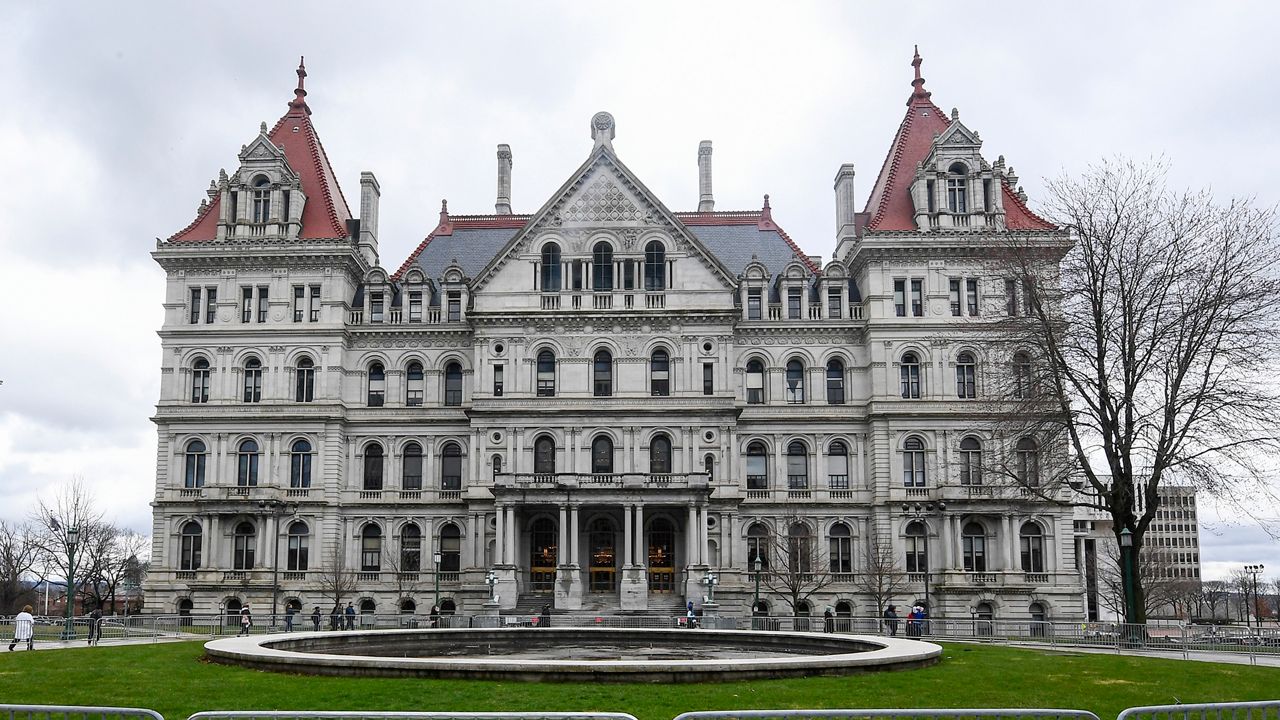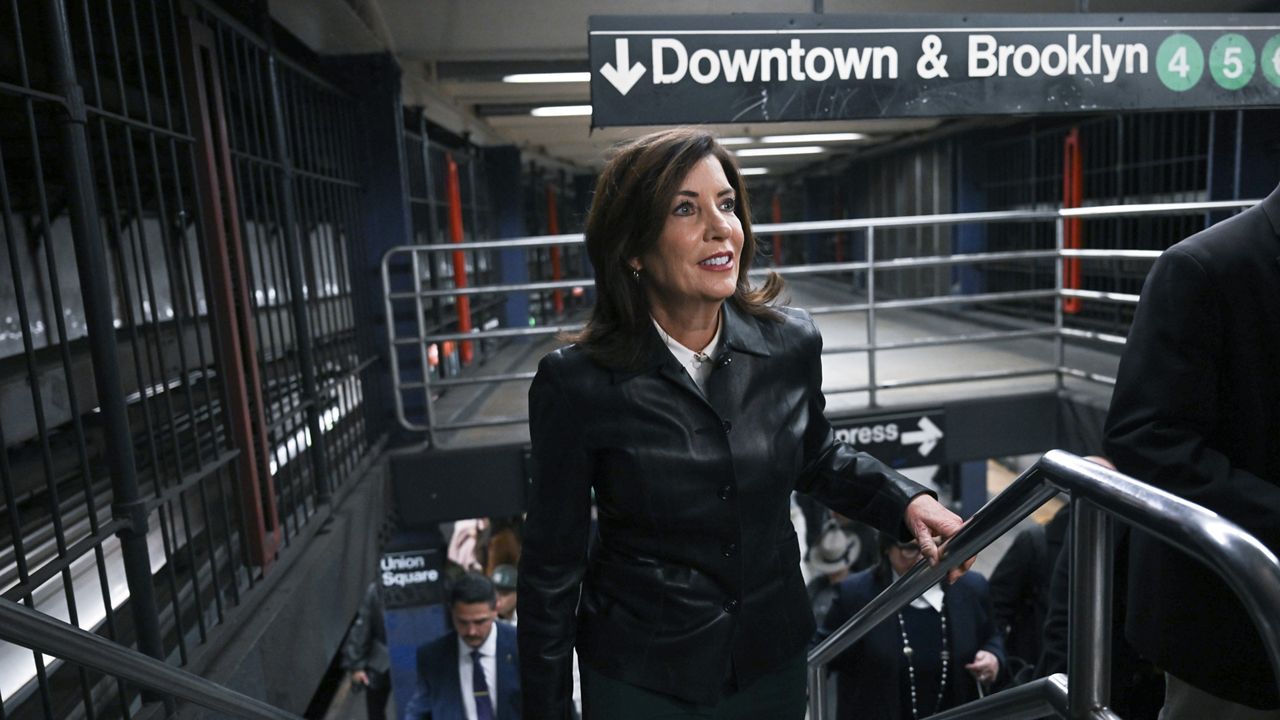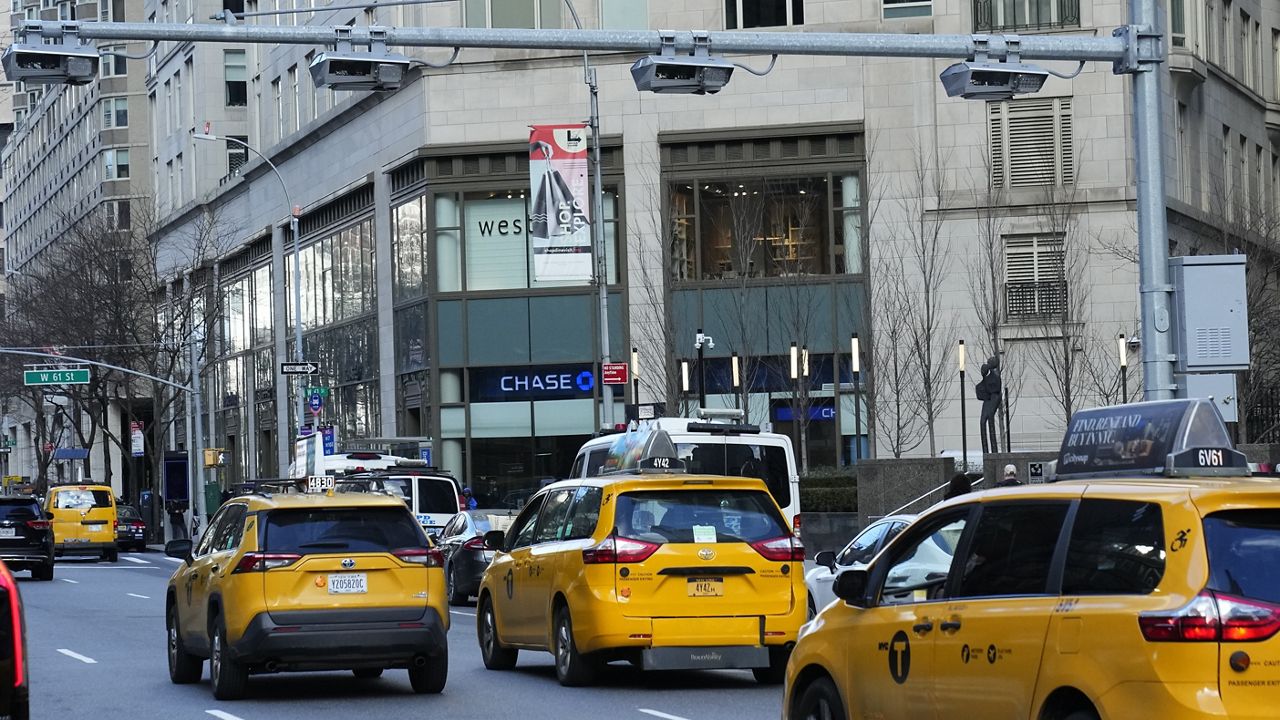Gov. Kathy Hochul will deploy the National Guard and state police into the subway system to help with bag checks following a recent surge in transit crime.
Seven hundred and fifty National Guard members and a combined 250 New York State Police and Metropolitan Transportation Authority Police personnel will indefinitely assist with the NYPD’s newly reinstituted checks, Hochul said at a news briefing Wednesday.
What You Need To Know
- Gov. Kathy Hochul said Wednesday that she will deploy the National Guard and New York State Police into the subway system to help with bag checks following a spate of violent crimes in transit
- Mayor Eric Adams on Tuesday said the city would reinstitute bag checks at certain stations as part of an effort to bolster public safety underground
- The deployment is just one part of what the governor called a five-point plan to crack down on crime in transit
“Anyone looking to do harm or spread fear on our subways, you will be caught, plain and simple. There will be consequences. This has to end. New Yorkers deserve no less. And to those who are feeling anxious whenever they walk through those turnstiles, we will stop at nothing to keep you safe,” Hochul said.
Mayor Eric Adams on Tuesday promised heightened security measures in the system, including bag checks at certain stations, as part of an effort to bolster public safety underground.
“No one heading to their job or to visit family or to go to a doctor’s appointment should worry that the person sitting next to them possesses a deadly weapon,” Hochul said. “They shouldn’t worry about whether somebody is going to brandish a knife or gun. That’s what we’re going to do at these checkpoints.”
An NYPD spokesperson on Wednesday said bag checks in the subway system take place “seven days a week” and added that checkpoints are “primarily chosen through intelligence data, threat assessments, and passenger volume.”
Prior to Wednesday's announcement, the bag checks were conducted in response to terrorism concerns, not crime. Passengers are free to refuse the checks and leave the station if they want.
The deployment is just one part of what the governor called a five-point plan to crack down on crime in transit.
The plan includes a proposal to amend state law to allow courts to ban anyone who has been convicted of a violent crime against another passenger from riding the subway or taking a bus for at least three years, she said.
“Now, there’s already a similar law on the books intended to protect personnel from the MTA, but that law has many loopholes that we’ve identified, and indeed, it’s only been used three times since it was enacted in 2020,” Hochul said. “We’re going to get to the bottom of that, find out what’s missing, what language is required.”
Next, Hochul said her administration will work to improve coordination between law enforcement, transit officials and the city’s district attorneys by holding regular meetings to share information regarding violent, repeat offenders within the subway system.
Hochul said the MTA will work with the NYPD and prosecutors to create a new “early-warning” system to better flag repeat offenders during the booking process. Earlier in the day on “Mornings On 1,” the mayor blamed “surging recidivism” for the bulk of crime happening in the subway system.
“We don’t have a surge in crime. We have a surge in recidivism,” Adams said.
The MTA will also hire someone for a new “criminal justice advocate” position who will be tasked with helping victims of subway crime, Hochul said.
Cameras, meanwhile, will be installed in conductor cabins — and on platforms facing the cabins — as part of the MTA’s ongoing camera installation efforts, she said. Last week, a subway conductor was slashed in the neck as he was operating a train in Brooklyn, police said.
“If a camera had been positioned on [the conductor’s] cabin last Thursday, we probably would have already apprehended the person who slashed his neck, or maybe they wouldn’t have done it at all if they knew cameras were watching their every move,” Hochul said.
Finally, Hochul announced $20 million in funding to expand a recently created pilot program known as Subway Co-Response Outreach, which pairs mental health clinicians with police officers to address those in the subway system experiencing “the most severe mental health crises.”
“These are people who pose a danger to themselves and others,” she said.
The state will use the funding to increase the number of operating Subway Co-Response Outreach teams from two to 10 by the end of 2025, she added.
Transit crime was up by 46.1% year over year in January, with 222 crimes recorded compared to 152 in January 2023, data released by the NYPD shows. Adams in late January ordered the deployment of 1,000 additional NYPD members to patrol the subway system due to the increase.
In February, the NYPD logged 148 transit crimes, down from January’s figure and down by 15.4% year over year, data released Tuesday shows.
Hochul’s announcement was met with criticism from the New York Civil Liberties Union. In a statement, the group’s executive director, Donna Lieberman, called the governor's plan “another unfortunate example of policymaking through overreaction and overreach.”
“These heavy-handed approaches will, like stop-and-frisk, be used to accost and profile Black and brown New Yorkers, ripping a page straight out of the Giuliani playbook,” Lieberman said. “Today’s announcement fails to address longstanding problems of homelessness, poverty, or access to mental health care.”
The Riders Alliance, a public transit advocacy organization, echoed Lieberman's concerns, saying on social media that its members were “disturbed to see [Hochul] deploy the National Guard to check bags in subway entrances as a core part of her safety response — a measure that evokes stop-and-frisk and will undoubtedly target Black and brown riders in greater proportion.”
“A meaningful approach to protecting millions of riders [and] workers on our platforms requires [Hochul] and [Adams] to invest resources in housing, [health care] and social services to address the root causes of problems that exist everywhere but are most visible on our subway,” the group said.
Meanwhile, TWU Local 100, the union that represents thousands of city transit workers, said the announcement was “welcome” but overdue.
“For months, we have been sounding the alarm about the terrifying acts of violence and aggression afflicting our members as they simply look to move riders safely through the city. And for months, we have been ignored and our calls for action disregarded,” TWU Local 100 president Richard Davis said in a statement, adding that the “measures announced today do not go far enough.”
“This promised surge of 1,000 MTA Police Officers and National Guardsmen cannot be just a temporary measure. It must remain in place,” Davis said. “And the Governor spoke today about legislative action to prevent and reverse transit crimes. We must be at the table to ensure that any proposed legislation truly accounts for the safety of all."
Subway riders Spectrum News NY1 spoke to on Wednesday had mixed opinions on whether the changes will lead to a reduction in crime.
“I think it will help, but I do think we have to pay attention to the mental illness,” subway rider Nancy Thompson said.
“I don’t think it’s very productive as a deterrent and it just kind of wastes time,” subway rider David Gringer added.
Regardless of whether Wednesday's changes lead to a reduction of crime, MTA chief Janno Lieber thinks straphangers will feel safer.
“I believe that the actions the governor has announced today can have an impact, not just on statistical safety, but on the perception and experience of our riders,” Lieber said.








